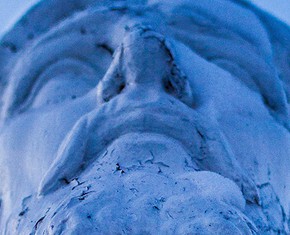The views expressed in our content reflect individual perspectives and do not represent the authoritative views of the Baha'i Faith.
How does the Baha’i Faith spread?
Baha’u’llah abolishes the clergy and prohibits proselytizing. Therefore the rapid spread of the Baha’i Faith to its present status of being the second most diffused religion in the world (second only to Christianity) results from individual Baha’is acceding to Baha’u’llah’s exhortation that all Baha’is teach the Cause to whoever expresses interest.
At the same time, this effort has specific constraints imposed by Baha’u’llah. First of all, Baha’is try to express their Faith primarily through deeds, not words:
The purpose of the one true God in manifesting Himself is to summon all mankind to truthfulness and sincerity, to piety and trustworthiness, to resignation and submissiveness to the Will of God, to forbearance and kindliness, to uprightness and wisdom. His object is to array every man with the mantle of a saintly character, and to adorn him with the ornament of holy and goodly deeds. – Baha’u’llah, Gleanings from the Writings of Baha’u’llah, p. 298.
The Baha’i teachings ask every Baha’i to characterize themselves chiefly through their actions:
O Son of My Handmaid! Guidance hath ever been given by words, and now it is given by deeds. Every one must show forth deeds that are pure and holy, for words are the property of all alike, whereas such deeds as these belong only to Our loved ones. Strive then with heart and soul to distinguish yourselves by your deeds. In this wise We counsel you in this holy and resplendent tablet. – Baha’u’llah, The Hidden Words, pp. 48-49.
Secondly, Baha’is should offer the Baha’i teachings only when they encounter a listening ear, someone who sincerely wants this information so that if “your hearer respond, he will have responded to his own behoof” – Baha’u’llah, Gleanings from the Writings of Baha’u’llah, p. 279. and not through coercion or enticements. Therefore, the Baha’i teacher should be careful not to “contend with any one, nay strive to make him aware of the truth, with kindly manner and most convincing exhortation.” – Ibid., p. 279.
Of course, this means that it is entirely appropriate to ask someone if they would like to know about the Baha’i Faith—they can hardly ask about something if they don’t know it exists. Nevertheless, as Baha’is teach others about what we believe to be important news, we must ever be aware, and impress upon the listener—whether they be seekers or simply curious—that Baha’is do not consider themselves better or more virtuous than people in other faiths, simply because we have taken on a new name or have chosen to follow the Baha’i path. Other people in many other faith traditions are also striving to be spiritual, to be “good” people. Baha’is simply feel they have been privileged to be made aware of information devised to guide people in the new environment that is the modern age.
In short, I early on became aware that taking on a new name would not make me a new person. Becoming a Baha’i is a path and a process, the designation of the intention to pursue a life-long goal, a Do or Dao as we call it in the Taoist tradition of the martial arts.
For me, becoming a Baha’i meant that I had attained a new perspective, a new mizán, a new knowledge. Putting that knowledge into action, that second inextricably related part of the two-part response to the teachings of Baha’u’llah so critical to personal spiritual ascent, that was another matter altogether.
I would discover that truth in my journey over the next five decades, and as I still discover it on a daily basis.
Next: Committing to the Baha’i Life
















Comments
Sign in or create an account
Continue with Googleor